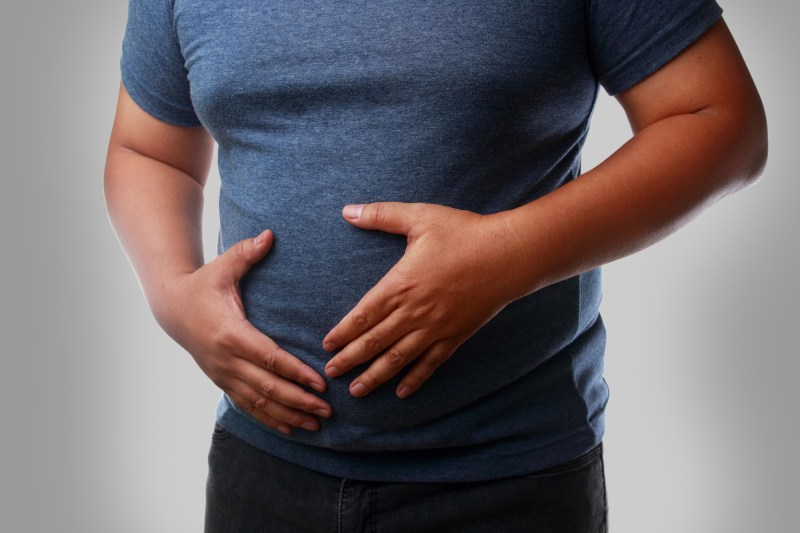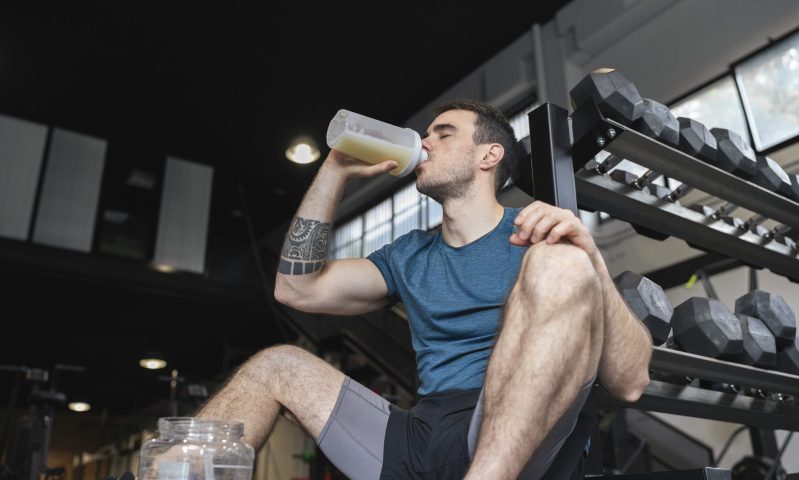Protein is extremely important. It’s what makes up your muscles, your skin, and most of the mechanisms inside your cells. It gets used up, and it has to be replenished. But not all of us can manage a high-protein diet every day.
That’s where protein shakes come in. They supply extra protein in a small package to help you reach your daily protein intake goals. Usually, they have low calories and little to no extra sugar, so they can provide just protein and nothing else.
So, how many protein shakes can you drink in a day? How many should you drink? In this article, we’ll help you find out everything you need to know about reaching your goals with protein shakes.
How much protein should men have daily?

It can vary quite a bit, but the daily value of protein, which is what they use when calculating nutrition labels, is 50 grams of protein per day. The recommended daily intake, a slightly more flexible measure, is about 45 to 60 grams per day.
If you want to get more specific than that, you can calculate your personal protein intake. Men are recommended to get 0.35 grams of protein per pound of body weight per day or 0.8 grams per kilogram. So, if you weigh 200 pounds, you should aim for 70 grams of protein.
However, it’s important to keep in mind that these are the general recommendations to avoid a protein deficiency. If you exercise regularly or want to build muscle, you should aim for 1.8 to 2.2 grams of protein per kilogram of body weight.
Are protein shakes a good source of protein?

A lot of popular protein shakes contain about 20 grams of protein, with 100 to 200 calories and little to no sugar. They’re a good source of the protein you need without breaking your diet. Some protein shakes have up to 40 or 50 grams of protein.
For comparison, a large chicken breast contains 30 grams of protein. This means that most protein shakes are almost as good a source of protein as a piece of chicken, although they contain less fat and fewer calories.
How many protein shakes can you have a day?

It is usually recommended that you drink only one or two protein shakes a day. For example, if you weigh 200 pounds, your minimum protein intake should be 70 grams per day. If you drink a protein shake with 20 grams of protein three times, that’s 60 grams or almost your entire protein intake. Unless you’re trying to replace all your protein intake with protein shakes, this is too much, and it is recommended that you get a decent amount of your protein from whole foods as well.
In fact, even that calculated daily intake can change depending on your activity level. Most people only need to drink protein shakes on days when they’re working out, either before or after the workout. Extra protein intake can help your muscles grow, but most people don’t require daily protein supplements.
Protein powder vs. pre-made protein shakes

Protein powder can be mixed into water, a smoothie, or any other liquid. Protein powders usually also contain the same amount of protein, about 20 grams per scoop. Some of them are sweetened, and some of them rely on whatever you mix them into for their flavor.
The major upside of
Are there side effects to overconsuming protein supplements?

It is possible to eat too much protein, and there can be side effects from higher-than-necessary protein intake. For example, you may experience constipation or other digestive effects because protein is harder to digest than the other macronutrients — carbohydrates and fat. Eating too much protein can also lead to weight gain, just like eating too much of anything else because there is an excess of calories.
Protein source alternatives

Meat is the most obvious source of protein — anything from steak and chicken to fish is a good source of protein and energy. Chicken and fish like tilapia are high-protein and low-fat, which makes them often a better choice than beef or pork. Milk and eggs are also good protein sources. Options for vegetable protein include peas and beans, soy, and protein-enriched wheat products like pasta.
Frequently asked questions

How do you know if you’re protein deficient?
If you’re not getting enough protein, you’ll often lack energy, and you won’t see the muscle gains you expect. You might also notice your hair, skin, and nails lacking luster and strength because protein contributes to their health.
How much protein per day is safe?
You usually shouldn’t go above the recommended intake for your weight. The general maximum is 2.2 grams per kilogram of weight, or 1 gram per pound, unless you’re doing really intense work like bodybuilding.




